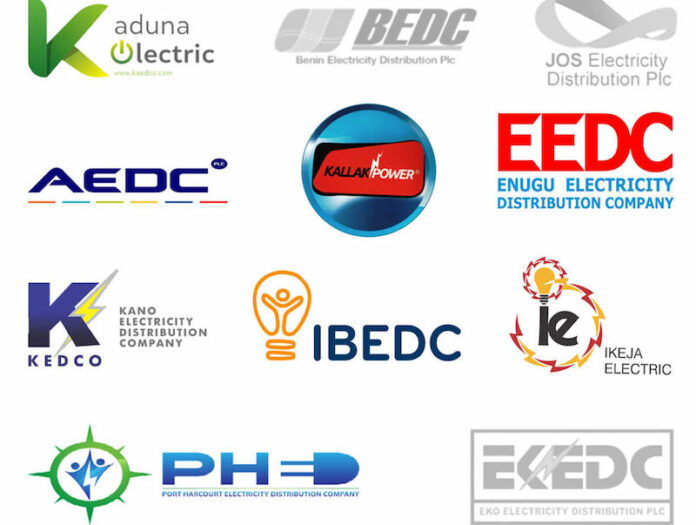Chigozie Amadi
The 11 electricity Distribution Companies (Discos) raked in N3.2 trillion in the last four years, growing revenue by as much as 109 per cent between 2020 and 2023, a period of four years.
However, while in 2020, Nigerians received 22,042.28 Gwh of power, in 2023, the year with the latest data, power supply rose marginally to just 23,942 Gwh, a growth of just about 8.6 per cent.
An THISDAY analysis of historical data from the National Bureau of Statistics (NBS), showed that in 2020, popularly regarded as the COVID-19 year, the total revenue made by the Discos was N526.77 billion, while in 2021, it rose to N761.17 billion.
Similarly, in 2022, the power distributors raked in about N828 billion, more than rounding the figure off in the 12 months of 2023, with N1.1 trillion as revenue.
This implies that between 2020 and 2023, the total revenue grew by over 100 per cent from N526.7 billion in 2020 to N1.1 trillion in 2023, while supply increased by just over 8 per cent.
Nigeria, a country of over 200 million population, is the least ‘electrified’ nation in the world, with just between 3,000mw to 4,500mw and incessant national power grid collapses.
A recent report by the International Energy Agency (IEA) stated that Nigeria’s national power grid collapsed 46 times from 2017 to 2023. In 2024 alone, the grid has failed about three times.
Of the N1 trillion revenue made by the electricity distributors in 2023, Ikeja Electricity Distribution Company (IKEDC) had N218.6 billion, followed closely by the Eko Distribution Company (EKEDC), which got revenue of about 177.6 billion during the period.
Abuja Electricity Distribution Company (AEDC) generated revenue of N167.4 billion from N125.7 billion recorded in 2022, while Ibadan Electricity Distribution Company got revenue of N111.3 billion.
Besides, Enugu Electricity Distribution Company (EEDC) got revenue of N82.5 billion, Yola Electricity Distribution Company (YEDC) got N22.3 billion, and Benin Electricity Distribution Company (BEDC) had N84.6 billion, while Kaduna Electricity Distribution Company (KAEDC) made N32.4 billion. Similarly, Kano Disco was N55.2 billion and Port-Harcourt Disco made N74.7 billion.
However, it should be noted that Discos get just a percentage of the collection as the Generation Companies (Gencos) get the lion’s share, while the Transmission Company of Nigeria (TCN) and the Nigerian Bulk Electricity Trading Plc (NBET) also get a percentage.
But the Nigerian Electricity Regulatory Commission (NERC) while defending the recent decision to hike electricity rates for premium customers, stated that in spite of the over 230 per cent recent increase in the electricity tariffs for Band ‘A’ customers, Nigeria still remains the 4th cheapest among 18 countries surveyed in Africa.
In a frequently asked questions (FAQs) released by the organisation, it stressed that despite the perceived high prices of on-grid electricity, it remains the cheapest and most reliable compared to other alternatives.
According to the commission, while Togo is priced at N251/kWh; Benin is N235 per kWh and Niger at N235/kWh, making Nigeria’s rate one of the most affordable on the continent.
“Contrary to popular belief, grid power in Nigeria is not only one of the cheapest in Sub-saharan Africa, it is also significantly cheaper than the readily available alternatives.
“For comparison, while grid power is charged N225/kWh, diesel generator sets cost N500/kWh at diesel price of N1,600/litre while petrol generator sets cost N417/kWh. Compared to 18 other Sub-Saharan African countries, the recently approved N225/kWh for Band A customers still ranks Nigeria as the 4th cheapest for residential customers. For context, Togo is priced at N251/kWh; Benin-N235/kWh; and Niger is N235/kWh,” the sector regulator stressed.
NERC has always argued that it considers some key indices before embarking on an upward review of the tariff.
According to NERC‘s Multi-year Tariff Order (MYTO), some major factors considered include the exchange rate, inflation rate, United States inflation rate, gas-to-power prices, among others.
In spite of dwindling power supply nationwide, Nigeria’s electricity Distribution Companies (Discos) raked in an additional N62.63 billion in revenues in the last quarter of 2023, compared to Q4, 2022.
The NBS indicated that compared to the previous Q4, 2022, revenues by the Discos increased from N232.32 billion to N294.95 billion during the period, a growth of over 23 per cent.
Almost all of Nigeria’s 11 electricity distributors have in the past been accused of under-investing in infrastructure to boost power supply to over 200 million Nigerians, who currently depend more on self-generated power for their homes and businesses, instead of the national grid.
Some experts have opined that the Discos remain the weakest link in the electricity distribution value chain, with just a peak capacity to distribute 5,500mw at a time, while the Gencos can generate 13,000mw and the TCN has the capacity to wheel 8,000mw at any point.
But the Discos have at various times also complained that they are not allowed by the government to collect cost-reflective tariffs, a development that has hobbled their ability to markedly raise investment in the sector.























